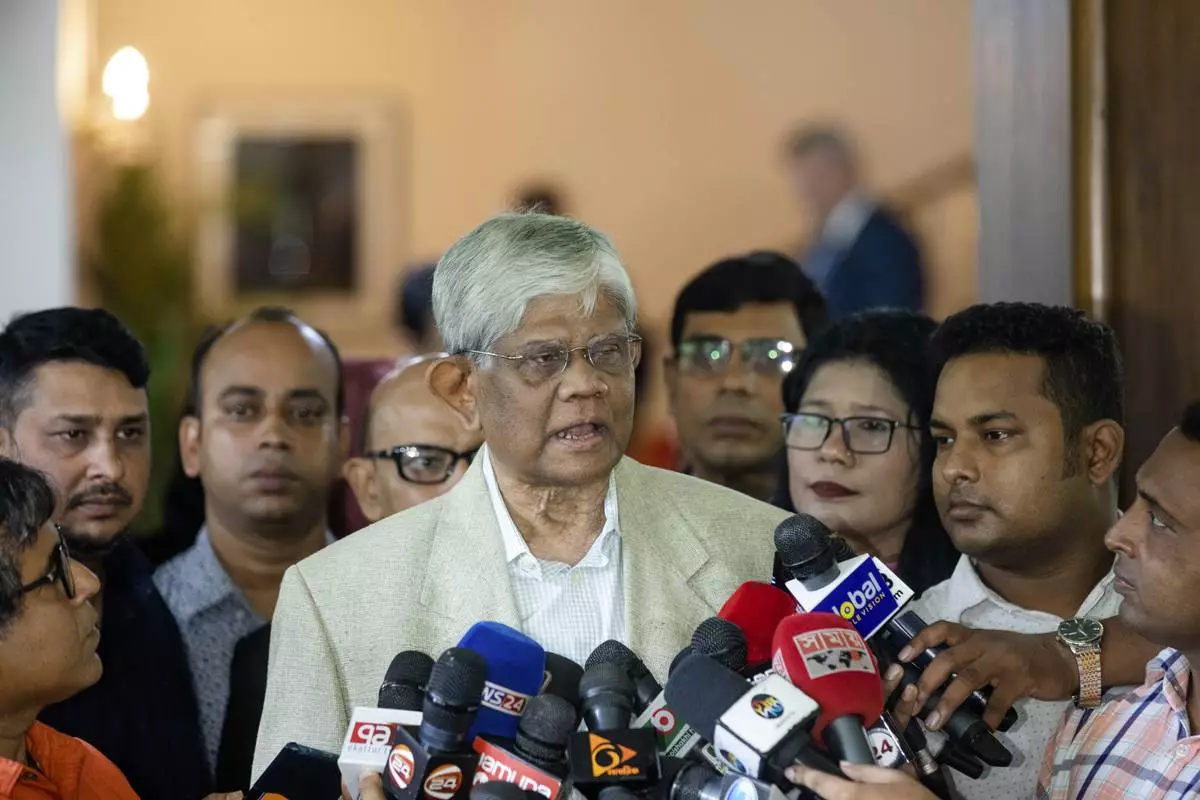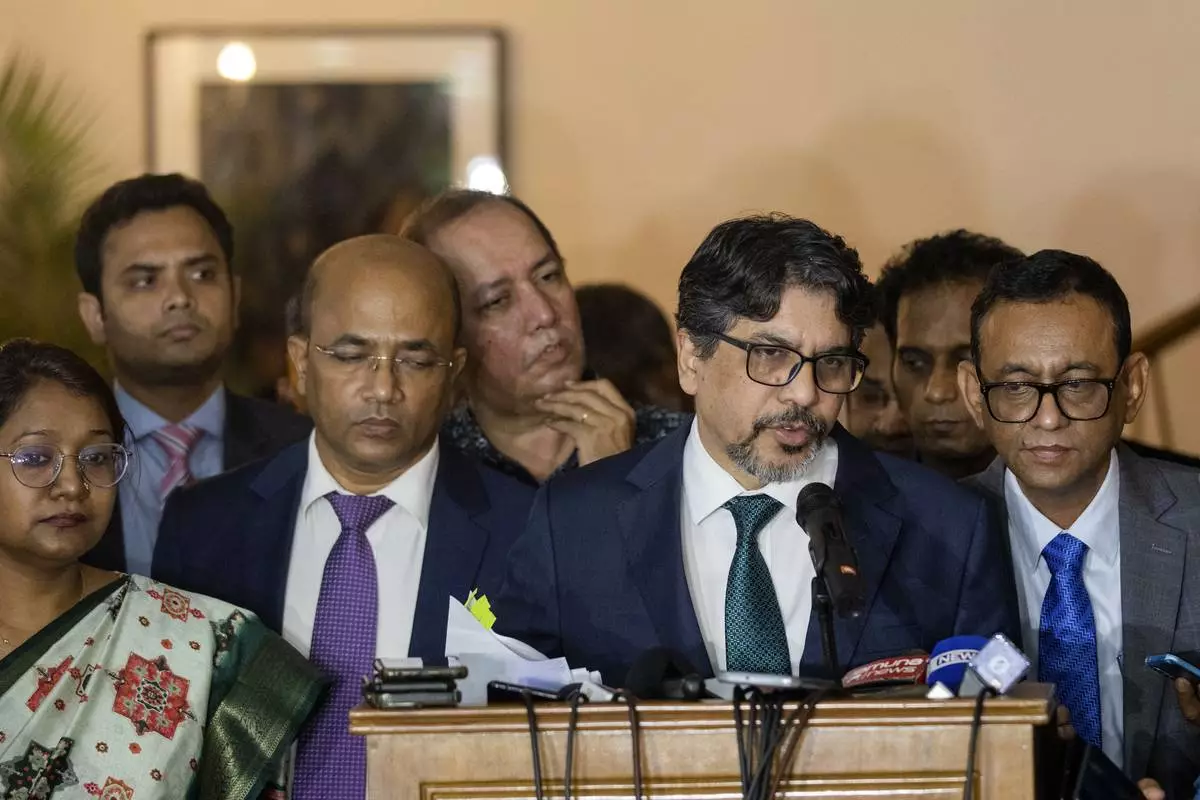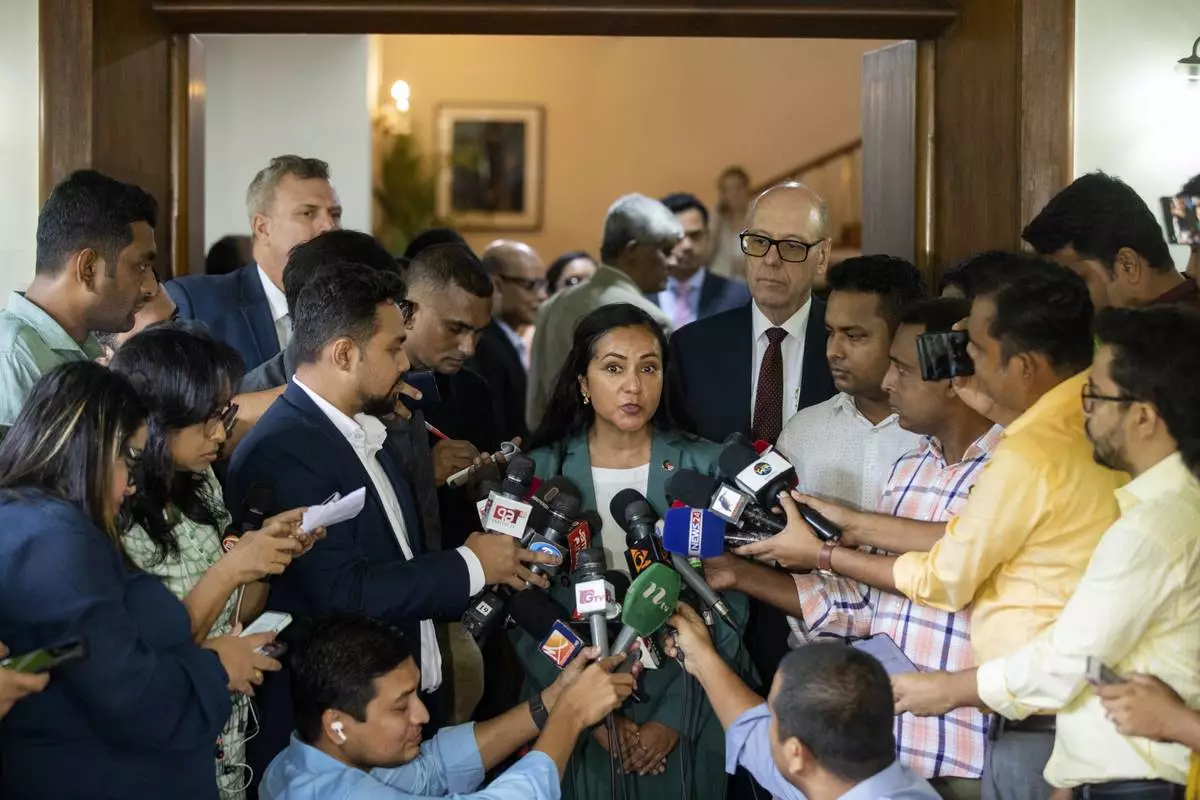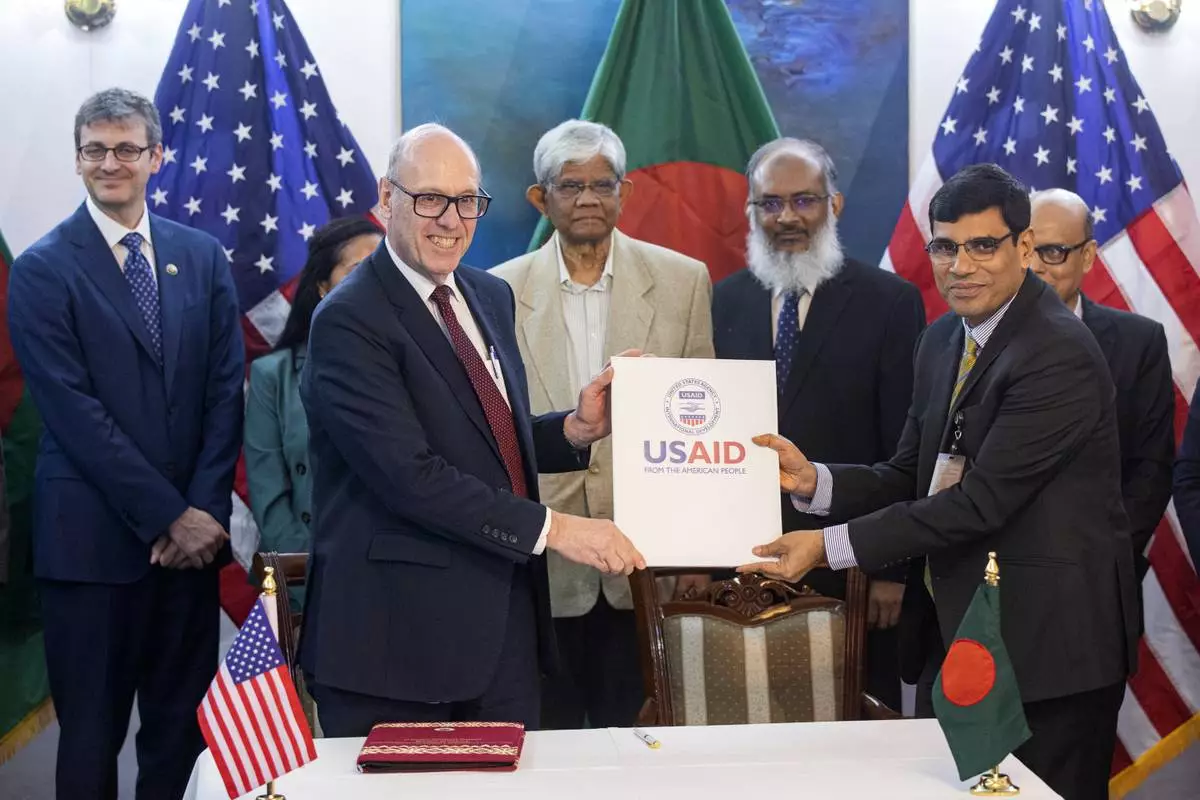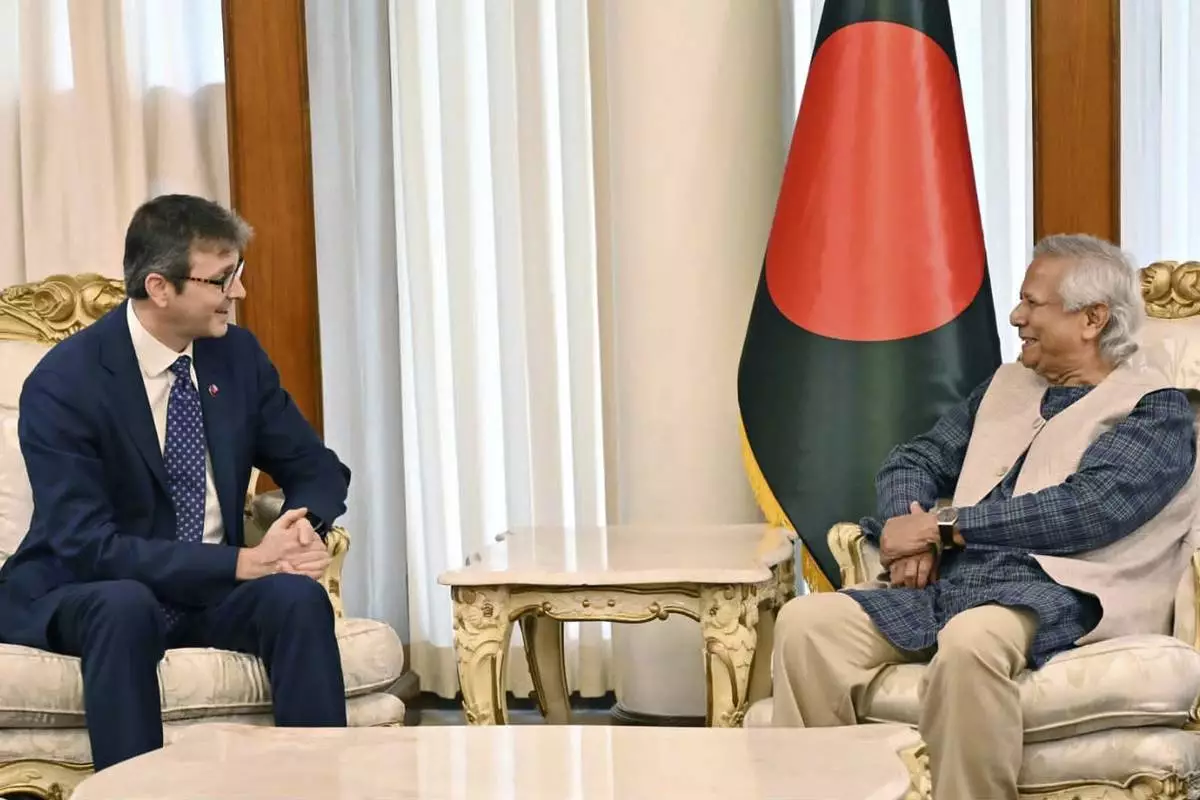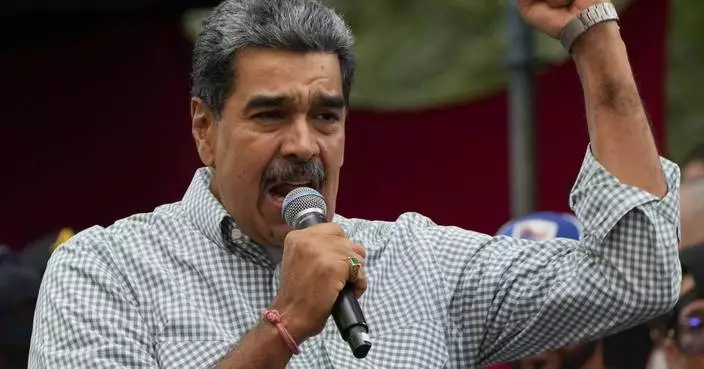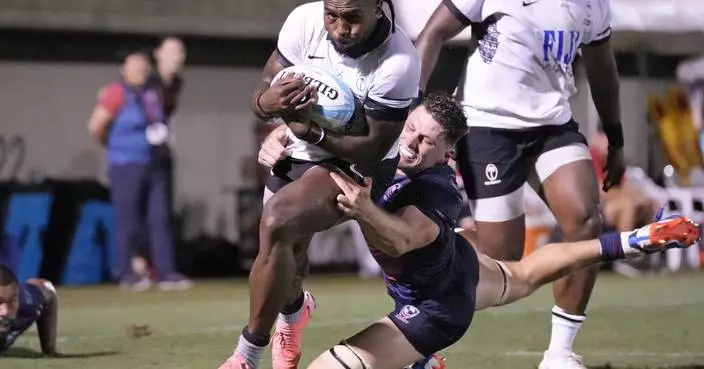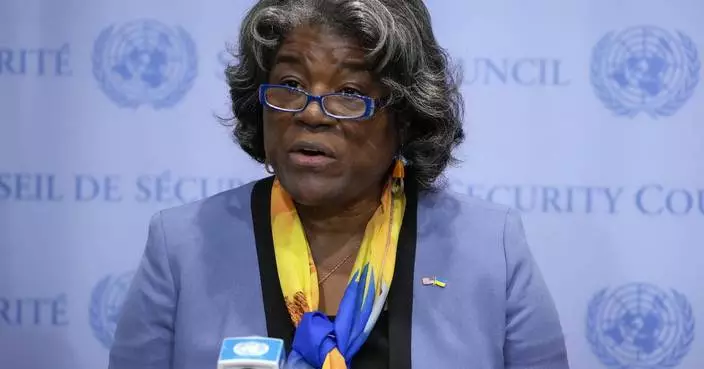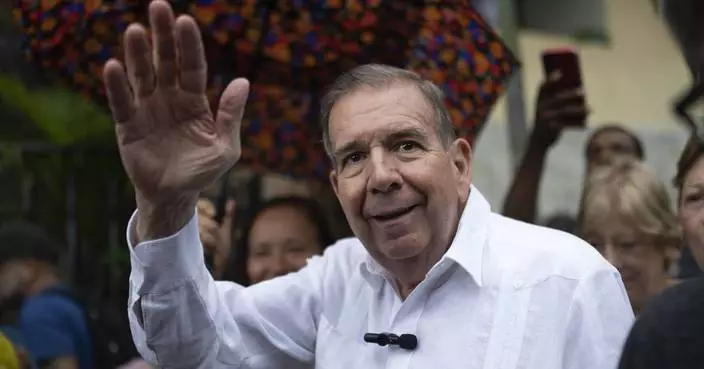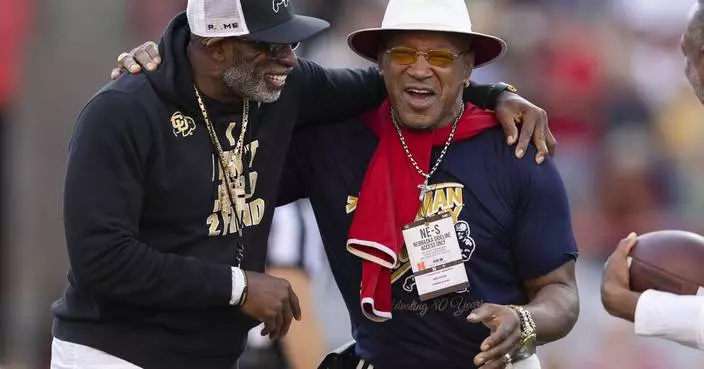The special prosecutor investigating former New York Attorney General Eric Schneiderman said Thursday that she couldn't bring criminal charges over allegations he physically abused women he dated, in part, because current state law doesn't explicitly outlaw such behavior.
In closing the six-month investigation, Nassau County District Attorney Madeline Singas implored lawmakers to pass legislation to criminalize slapping, shoving and other violence committed for sexual gratification.
Singas, who was appointed to conduct the investigation by Gov. Andrew Cuomo in May, said investigators conducted an "exhaustive review" and that she personally interviewed each woman who had accused Schneiderman of assault. Investigators also spoke with members of Schneiderman's security detail and people who worked for him in the attorney general's office, she said.
"I believe the women who shared their experiences with our investigation team, however legal impediments, including statutes of limitations, preclude criminal prosecution," Singas said in a statement announcing her decision.
She said she found no misconduct by attorney general's office staff.
Schneiderman, 63, said he recognizes that Singas' decision "does not mean I have done nothing wrong."
"I accept full responsibility for my conduct in my relationships with my accusers, and for the impact it had on them," Schneiderman said through a publicist. "After spending time in a rehab facility, I am committed to a lifelong path of recovery and making amends to those I have harmed. I apologize for any and all pain that I have caused, and I apologize to the people of the State of New York for disappointing them after they put their trust in me."
Schneiderman, a Democrat, announced his resignation in May, hours after The New Yorker published an expose saying that four women had accused him of slapping or choking them.
Some of the women said Schneiderman was a heavy drinker.
Schneiderman at the time didn't deny the allegations, but implied in an initial statement his conduct was either welcomed or was not as the women described.
Michelle Manning Barish, a Democratic activist and writer, said Schneiderman became controlling and abusive — slapping her hard across the face and choking her — soon after they started dating in mid-2013.
Manning Barish said Thursday she felt "completely vindicated" by Schneiderman's acknowledgement he had abused women, and said she would work to ensure that legislation outlawing such behavior is passed into law.
Tanya Selvaratnam, an author and film producer who dated Schneiderman in 2016 and 2017 and described similar abuse, thanked Singas "for the care she gave to the investigation."
"This experience underscores the need for legislation addressing intimate violence so all of those who experience it can come forward knowing they have protection under the law," Selvaratnam said in a statement.
Under current New York law, a slap, shove, or kick that doesn't cause physical injury can be charged as a non-criminal violation, but only if the offender's intent is to "alarm, harass, or annoy" the victim.
Charges can't be brought if the offender's intent is sexual arousal or gratification, unless the victim proves the violence caused substantial pain or injuries that go beyond bumps, bruises and cuts.
Singas' proposal calls for classifying sexually motivated violence as a misdemeanor, which would carry punishment of up to one year in jail, along with a two-year statute of limitations.
Manning Barish's lawyer, Debra Katz, said closing the gap in the law is "crucial to protect victims of sexual abuse and violence from the deeply emotionally scarring injuries they experience in their intimate relationships."
"Without it, abusers can get off scot-free — even when they later admit to the behavior, as Mr. Schneiderman did today," Katz said.
In the meantime, Manning Barish is calling on Schneiderman to donate millions of dollars left in his campaign coffers to women's shelters and domestic abuse programs in the state, and that she wished him well in his recovery.
"This is a victory for all women but we need more than words," she said.
Schneiderman's campaign fund had about $7.4 million as of July, according to a campaign finance report filed with the state. He had even more money stockpiled, but his campaign refunded about $1 million in donations in the two months after he quit.
Schneiderman's publicist didn't immediately respond to a question about his plans for the money.
Cuomo appointed Singas as a special prosecutor, bypassing Manhattan District Attorney Cyrus Vance Jr. because of a potential conflict of interest. At the time, the attorney general's office was investigating how Vance's office had handled a sexual misconduct allegation against movie mogul Harvey Weinstein.
The allegations tarnished Schneiderman's reputation as a defender of women at the forefront of the #MeToo movement. Schneiderman launched an investigation last year into movie producer Harvey Weinstein's studio, and in February filed a lawsuit aimed at securing better compensation for his sexual misconduct accusers.
After The New Yorker story was published, Manning Barish wrote on Twitter: "After the most difficult month of my life-I spoke up. For my daughter and for all women. I could not remain silent and encourage other women to be brave for me. I could not."



